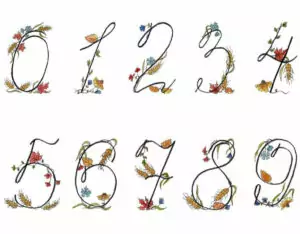Learning a new language comes with its challenges, from mastering its grammatical rules to understanding its idiomatic expressions. Among these linguistic hurdles, knowing how to apologize or say “excuse me” is an essential social skill. This article provides a comprehensive guide on how to say “excuse me” in German, alongside related phrases and cultural nuances.

✅ AI Essay Writer ✅ AI Detector ✅ Plagchecker ✅ Paraphraser
✅ Summarizer ✅ Citation Generator
The Basics: “Excuse Me” and “I’m Sorry”
One of the most common ways to say “excuse me” in German is “Entschuldigung.” This versatile word can be used to draw attention, express apology, or ask someone to repeat something. Additionally, the phrase “Tut mir leid,” translates to “I’m sorry” and is typically used to express regret for a mistake or harm caused.
A Closer Look at “Entschuldigung”
“Entschuldigung” is a compound word made up of “ent-” (a prefix that negates the word following it) and “Schuld” (meaning “guilt”). Therefore, “Entschuldigung” essentially means:
- “unguilt”
- or, more loosely, “removal of guilt.”
This reveals the profound nature of apologizing in German, as it implies not just a surface-level apology, but a deeper request for absolution.
Delving Into “Tut Mir Leid”
Unlike “Entschuldigung,” “Tut mir leid” conveys a sense of personal regret. “Tut” is the third-person singular form of the verb “tun” (to do), “mir” is the first-person singular dative pronoun (to me), and “leid” means sorrow or harm. Thus, “Tut mir leid” literally means “It does sorrow to me” — in other words, “I’m sorry.”
Advanced Phrases for Apologizing in German
Beyond “Entschuldigung” and “Tut mir leid,” there are other ways to express remorse or apologize in German. For example:
- “Ich möchte mich entschuldigen” translates to “I would like to apologize.” This phrase is slightly more formal and is often used when expressing regret for a significant mistake or wrongdoing.
- In contrast, if you’re looking for a less formal way to say “excuse me,” “Verzeihung” is a good option. This phrase is less commonly used than “Entschuldigung,” but it’s a great choice if you’re looking to diversify your vocabulary.
- Similarly, if you’ve said something you didn’t mean and wish to take it back, you could say, “Nicht so gemeint,” which translates to “I didn’t mean it.”
If you’re in a situation where you’ve wronged someone and want to ask for forgiveness, you could use the phrase “Kannst du mir verzeihen?” This translates to “Can you forgive me?” and conveys a deeper sense of regret for one’s actions.
Expressing Sympathy or Condolences in German
When it comes to expressing sympathy or condolences in German, the phrase “Mein Beileid” is commonly used. It translates to “my condolences” and is an appropriate response when someone has experienced a loss or is going through a tough time.
Cultural Considerations When Apologizing in German
While knowing the words and phrases to say “excuse me” or “I’m sorry” in German is important, and wondering “is jawohl a bad word” might come up in learning German etiquette, understanding when and how to use them in context is equally crucial. Germans generally place a high value on directness and honesty, so apologies are usually well-received when they are sincere and straightforward.
It’s also important to consider the formality of the situation. While “Entschuldigung” can be used in both formal and informal situations, phrases like “Ich möchte mich entschuldigen” or “Kannst du mir verzeihen?” might be more appropriate for formal settings or serious transgressions.
In Conclusion
Mastering apologies in German goes beyond simply knowing the translations for “excuse me” and “I’m sorry.” It involves understanding the cultural context, the formality of the situation, and the nuances of the language. With this guide, you’ll be well-equipped to navigate the subtleties of apologies in German.
FAQ
How do I politely get someone’s attention in German?
The phrase “Entschuldigung” is commonly used to politely get someone’s attention in German. You can use it in various contexts, whether you’re trying to move through a crowd or get a waiter’s attention at a restaurant.
Can “Entschuldigung” be used in formal and informal situations?
Yes, “Entschuldigung” can be used in both formal and informal situations. However, if you’re in a more formal context or you’ve made a significant mistake, you might want to use a more formal phrase such as “Ich möchte mich entschuldigen.”
What are some other phrases for apologizing in German?
In addition to “Entschuldigung” and “Tut mir leid,” you can use phrases such as “Ich möchte mich entschuldigen” (I would like to apologize), “Verzeihung” (Excuse me), and “Kannst du mir verzeihen?” (Can you forgive me?).
How can I express sympathy or condolences in German?
The phrase “Mein Beileid” is commonly used to express sympathy or condolences in German. It’s an appropriate response when someone has experienced a loss or hardship.
Are there any cultural considerations when using “excuse me” in German?
Yes, when using phrases like “excuse me” or “I’m sorry” in German, it’s important to be sincere and direct, as this is generally appreciated in German culture. Also, consider the formality of the situation to choose the most appropriate phrase.
How to say sorry in German?
One of the most common ways to say “sorry” in German is “Tut mir leid.” However, you can also use “Entschuldigung” or “Ich möchte mich entschuldigen” to express your apologies.
How to ask for forgiveness in German?
If you want to ask for forgiveness in German, you can use the phrase “Kannst du mir verzeihen?” This directly translates to “Can you forgive me?” and conveys a deep sense of remorse and desire for forgiveness.
Follow us on Reddit for more insights and updates.
Comments (1)
Welcome to A*Help comments!
We’re all about debate and discussion at A*Help.
We value the diverse opinions of users, so you may find points of view that you don’t agree with. And that’s cool. However, there are certain things we’re not OK with: attempts to manipulate our data in any way, for example, or the posting of discriminative, offensive, hateful, or disparaging material.





This was very useful for speaking, colloquial German! Excellent for a beginner. Also, useful would be idiomatic expressions!